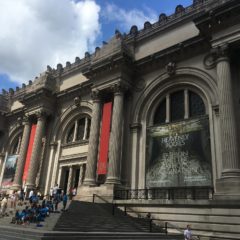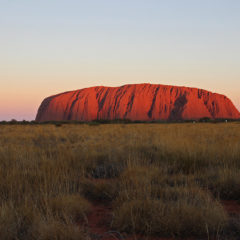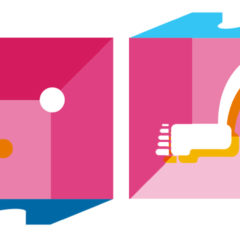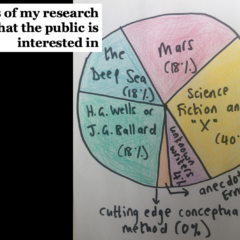Notes on Camp 2019
by Dickon Edwards At the end of each year, critics like to put out their lists of highlights. In a similar vein, the following represents my own survey of the year 2019 in terms of the books and other media which affected my field of research. My field is camp modernism. ‘Camp’ as in the aesthetic of exaggeration and parody, often with implications of identity, and literary ‘modernism’, as in the innovative literature of the early twentieth century. My argument is that the best examples of camp modernism in literature are the works of a British writer who tends these days to be overlooked, Ronald Firbank. Firbank published a series of novels from 1915 to his death in 1926, including Vainglory, Valmouth, and The Flower Beneath the Foot. He is described in Susan Sontag’s 1964 essay ‘Notes on Camp’ as one of the two ‘conscious ideologists of camp’, the other being Oscar Wilde.[1] In May 2019 Sontag’s essay was used as the theme to one of the biggest events in the American celebrity and fashion world – the opening gala for the summer exhibition at the New York Metropolitan Museum of Art’s Costume Institute. Or as it’s usually known more simply, the Met Gala. This year’s gala required guests to interpret the exhibition’s title, ‘Camp: Notes on Fashion’. Among the guests was Billy Porter, the actor from the TV series Pose, which narrates the lives of trans people of colour during the New York drag balls of the late 1980s. At the Met Gala, Porter dressed in gold lamé as an androgynous Egyptian-like deity from the ancient world, carried on a litter by a group of half-naked men in similarly ornate Egyptian veils, matched more anachronistically with gold painted jeans. On Twitter, Porter supplied his own annotation to his costume: ‘The Category Is: Old Testament Realness.’[2] Viewers of Pose, or indeed RuPaul’s Drag Race, will recognise that statement as a catchphrase from drag contests. The serious implication is that camp plays with the idea of categories as received structures of power. Camp asks what defines such categories, who defines them, what they mean, and why they exist at all. I was reminded of the way that modernism, too, is a much-questioned category, and that it’s works like Firbank’s novels or Virginia Woolf’s Orlando (1928) which bring this interrogative aspect of camp into the category of literary modernism. Happily for me, the catalogue accompanying the Met exhibition begins with a epigraph from Ronald Firbank’s Vainglory (1915), one which also relates to Billy Porter’s costume: ‘If we are all a part of God then God must indeed be horrible’.[3] As Firbank’s...
Such Stuff As Dreams Are Made On
Patti Smith, Year of the Monkey by Karina Cicero Patti Smith dreams and writes, writes and dreams, walks, sleepwalks, questions and converses with all manner of signs in her latest memoir. Drawing on events of the last year she spent with her close friends Sandy Pearlman and Sam Shepard, she revisits focal points in her career, enclosures previously visited, landscapes she had never seen but feels lured to, and recreates conversations that have never (and may) not take place in the realm of the real, all under the auspicious protection of the year of the monkey (2016) in the lunar calendar. The main protagonist is the process of dreaming and its outcomes. Dreaming takes on an elastic function in Smith’s narrative, as she blurs the boundaries between sleeping and wakefulness, bringing in elements of the unconscious into her waking moments: ‘I actually watched myself fall asleep’ (58). Her chronicles are ornamented with uncanny discoveries of candy wrappings, ‘All opened, yet not a trace of chocolate’ (11), and signs that voice enigmatic messages – ‘There are many truths and there are many worlds’ (23) – as she embarks on a quest for clues: a process fashioned after the detective novels she hopes to write one day or, some might argue, a tribute to Roberto Bolaño’s 2666. An obvious and almost expectable intertextuality with Alice’s Adventures in Wonderland lurks in the narrative, blaming on the magnetic power of the Dream Inn sign the distorted images her minds summons, likening her to ‘Alice herself, glumly presiding over an endless tea party’ (6).The only difference from that classic text is that Patti knows exactly where she is heading and who is waiting for her (or no longer will be) at the end of this fateful year. Smith does not limit herself to comment on the reality she witnesses; she transcends images and appearances to explore the soul behind an inert neon sign, or a bowl of soup. The narrative in Year of the Monkey blurs the lines that divide the present from the future and from the past. These are obliterated to give way to a constant criss-cross of temporality, like the moment when she has an epiphany about taking a trip to see Ayers Rock, in Uluru, and her interlocutor assures her she has already started that trip – in her mind: ‘The soles of your shoes are already red’ (104). It is not surprising to discover her longing to visit Ayers Rock. In Smith’s world, life is an ever-present punctuated by focal points, which illuminate certain periods of her life but lead up to any other point in the past and...
Transitions 9: Call for Papers
CALL FOR PAPERS: TRANSITIONS 9 – new directions in comics studies 2020 Birkbeck, University of London Saturday 21st March 2020 We are delighted to announce a call for papers for the Transitions 2020 symposium. Transitions is a platform for emerging research in comics that is free to attend and participate in. This event is focused towards postgraduate and early career speakers, and usually draws a diverse crowd of both new and more established researchers, as well as creators, aficionados and other interested parties. Our aim is to build connections between comics scholars working in diverse academic departments and contexts, to provide a platform for productive debate, and to create a space from which further collaborations can emerge. Keynote speakers: Prof Sylvia Kesper-Biermann (Universität Hamburg) and Dr Nick Sousanis (San Francisco State University) Respondent: Professor Roger Sabin (University of the Arts London) Rather than adopting a narrow theme, the shape and identity of the programme will emerge from the submitted papers. We thus welcome abstracts for 20 minute papers, or pre-constituted panels of three, on topics including (but not limited to): Comics, comix, comic strips, graphic novels, manga, manhwa, bande dessinée, superheroes, adventure, war, horror, fantasy, crime, romance, humour & other genres; documentary/historical/journalistic comics, autobiographical/biographical modes, graphic medicine, politics of representation in comics, formal approaches, transgressive comics, educational and didactic comics, comics for young adults & children, readers and fandoms, creators, comics & the law, publishing histories, web-comics & comics exhibitions, transnational circulation, political economy of comics Please send your proposal to transitionssymposium@gmail.com. Please attach your abstract of 250-300 words plus a short biographical note (preferably as a Word document), indicating ‘abstract’ in the email subject line and your name in the file’s title. This year we are also seeking volunteers to sketchnote / visually record each panel, in order to compile a visual record of the day. If you’d be interested in recording a panel, please email us a couple of (low-res) images or a link to an online portfolio at the above address with ‘sketchnoting’ in the subject line. You do not need to be submitting a paper to take part in this. The deadline for submissions is 1 January 2020. We aim to notify applicants by Friday 17 January. Click here to view the call for papers as a PDF. With best wishes, The Transition Team ...
Organic Systems: Session 4 – report
by James Burton The fourth and final event in the CHASE Organic Systems series took place in the Dana Studio at London's Science Museum. We were hosted by curator and researcher Glyn Morgan, who is in the process of developing a major exhibition on science fiction that will open at the museum in 2021. In the morning training session, Dr Morgan introduced us to the wide range of opportunities for research collaboration offered by the museum, including support for preparing collaborative funding applications, the on-site research library, and the Collaborative Doctoral Partnership scheme. We also learned about some of the many archives and holdings of the museum relevant to our interests, such as the huge James Lovelock archive (including patents, school reports, letters, prototype inventions and much more). Glyn also offered some fascinating historical examples that reveal the cultural, historical and theoretical intertwining of our key themes of science, fiction and ecology, such as the influence of pioneering radiation researcher Frederick Soddy on H. G. Wells (and vice versa). The session was followed by a short museum tour in which participants’ attention was directed to some of the long-term exhibits relating to our discussions, including the landers and of the 'Exploring Space' section of the museum, and a replica of the 'Clock of the Long Now'. In the afternoon, Roger Luckhurst introduced and moderated our first workshop session, which saw Glyn Morgan joined by two inspiring and thought-provoking interlocutors: Hugo-award-winning historian and critic of science fiction Farah Mendlesohn, and architect, educator and researcher Amy Butt, who draws on science fiction as a critical resource across her practice and teaching. Farah Mendlesohn opened the discussion with several provocative ideas about the changing historical and cultural status of “waste” in relation to a number of questions of environmental and ecological transformation. All three panellists drew on different works of SF (such as Kim Stanley Robinson’s Aurora and Chen Qiufan’s Waste Tide) in exploring different creative and political ways of engaging with and (re)thinking these issues. In the latter part of the session, participants were divided into groups and took part in an interactive exercise conceived and led by Amy Butt, using physical materials and ideas from SF narratives to explore speculative ecologies of plastic, considering questions of waste, recycling, and the imbrication of different environments, networks and agents. The exercise gave rise to several (often surprising) lines of exploration and discussion around our key issues, as well as reflections on the value of SF for critical and speculative research. In the final session of the day, a collective of early career researchers working at Birkbeck and Goldsmiths (the two institutions organising the...
Organic Systems: Session 3 – report
CHASE series: Organic Systems Workshop 3: Ecologies of Gender Report by Dr Sean O'Brien (Birkbeck, University of London) After a brief introduction and recap of previous sessions, in which Dr Joseph Brooker (Birkbeck, University of London) discussed the increasing awareness of ecology as a critical issue and noted the emerging interest in SF as a critical field with certain capacities for addressing pressing ecological questions and concerns, the group considered a set of questions posed by Dr Caroline Edwards (Birkbeck, University of London) that were designed to help incorporate feminist thinking and gender politics into the discussion of SF and ecology. These questions included: ‘How is feminist thinking valuable for thinking about the environmental and issues of ecological equality and futurity?’ ‘What happens if we ignore gendered experiences of when thinking about environmental issues like climate change?’, and ‘Can SF function as a method, rather than a literary or cultural mode of production [that could] help us address ecological issues?’ Dr Edwards then ran a PhD training session on ‘Public Engagement: Communicating SF Research to the General Public’. Dr Edwards began by problematizing the term ‘general public’, noting that the public is not only more accurately described as publics plural but also, and perhaps more importantly, is a space characterized by divergent backgrounds and a multiplicity of knowledges. Dr Edwards has spoken at a wide variety of public eventshosted by venues such as The Wellcome Trust, Deptford Cinema and Radio 4, and her work has appeared in a number of public outlets, including The Guardian and SFX. She has also staged public exhibitions, including Imagined Futures at the Museum of London, which was recognized in Birkbeck’s Public Engagement Awards, 2018. Over the course of her career, Dr Edwards discovered that her academic interests don’t always translate well for a mixed audience. The research forthcoming in her monograph, Utopia and the Contemporary British Novel (Cambridge University Press, 2019), develops cutting edge conceptual methods from Science Fiction Studies and Utopian Studies for reading a number of lesser-known contemporary British authors. This work has not been picked up by public media as has her work on Mars, the deep sea, the work of H. G. Wells and J. G. Ballard, or various topics she has placed in conversation with Science Fiction. The task then for researchers keen to disseminate their work to the public is to contextualize their research interests using broader topics of public interest, especially thematic and historic contexts. Dr Edwards emphasized that the timelines for public appearances tend to be rather tight, and so it’s important to think about how to use your time wisely and make the work...






Recent Comments